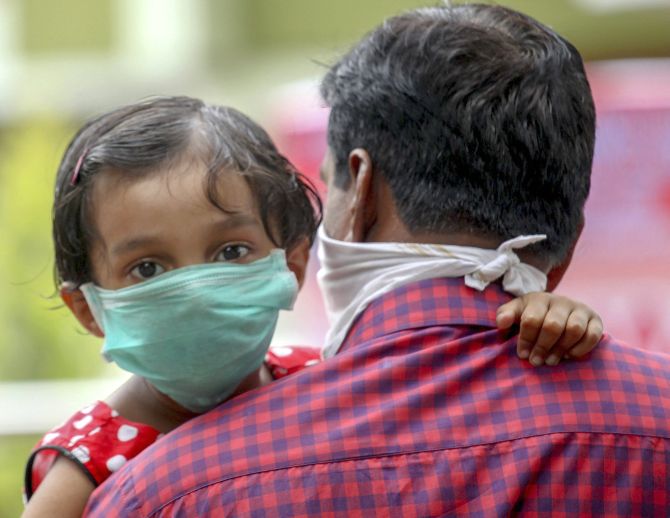The death toll due to the Nipah rose to 13 in Kerala, with one more person succumbing to the deadly virus in Kozhikode on Sunday.

Twenty six-year-old Abin, hailing from Palazhi in the district, died at a private hospital after battling for life for one week, official sources said.
Kalyani, a septuagenarian woman who was undergoing treatment at the Government Medical College, died on Saturday.
After the outbreak of Nipah at a hamlet in Perambra last week, 16 people have tested positive, of whom 13 have died so far.
Health Minister K K Shylaja told reporters that the authorities had collected details of people who had direct contact with the deceased persons and all of them are now under observation.
However, the authorities are still clueless about the actual source of the spread of the virus.
As samples of insectivores bats tested negative for the virus, the Kerala Animal Husbandry Department and the Pune based National Virology Institute are jointly collecting samples of fruit-eating bats to be sent for expert tests.
The samples would be sent for tests at the National Institute of High Security Animal Diseases in Bhopal, official sources said.
Meanwhile, Tourism Minister Kadakampally Surendran said in Thiruvananthapuram that the government and the department would take the initiative to alleviate the concern among tourists and stakeholders following the outbreak of Nipah.
The effective steps taken by the government and the health department had helped contain further spread of the disease and the situation is under control now, he said in a meeting of the state Tourism Advisory Committee.
The outbreak of the Nipah virus infection, a newly emerging zoonosis that causes severe disease in both animals and humans, is suspected to be from an unused well in Perambra which was infested with bats.
The natural host of the virus is believed to be fruit bats of the Pteropodidae family, Pteropus genus.